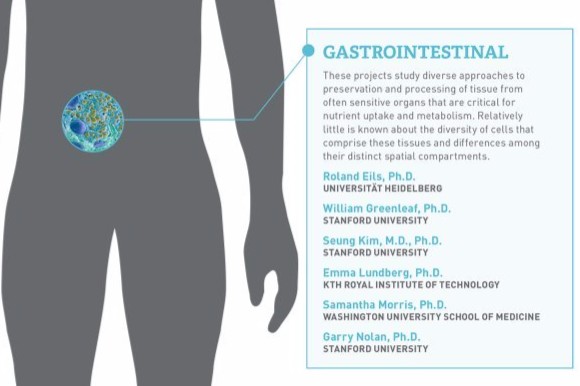The Human Cell Atlas will map all of the cells in the body, and the Chan Zuckerberg Initiative has given a grant to Swedish researchers to join the project.
Mark Zuckerberg and his wife, Priscilla Chan, founded the Chan Zuckerberg Initiative to provide resources for projects, including biomedical research. The Initiative supports the Human Cell Atlas, an exciting international collaboration of 38 groups working to identify and map all the cells in the human body. The Chan Zuckerberg Initiative has provided a lab at KTH Royal Institute of Technology, Stockholm, with funding to join the project.
A limiting factor preventing the identification of specific cell types and their particular features has been technology. But new technology like single-cell genomics overcomes this. The Atlas will include information on the cell types found throughout the body, and their numbers, relationships and molecular components. Once complete, it will help us to understand how healthy cells work, and what goes wrong when disease strikes.
There are approximately 300 known cell types, but the goal of the project is to find and map the unknown. The group at KTH, which has also been working on a Human Protein Atlas, has received a grant to begin work looking at the pancreas. The Atlas will be available free-of-charge to everyone – a welcome change from publishers taking down subscription-free sites.

Mapping research has not been a big draw for investors in previous years, who are perhaps driven to invest in therapeutics where a return is more likely. But, Emma Lundberg, Human Cell Atlas project leader at KTH, hopes that this might signal a change: “It has been difficult to get money for mapping research without clear hypotheses. This research grant may affect other donors to think along the same lines.”
The project will not just produce a pile of inert data, the resource created will have endless applications. For example, a more detailed understanding of cell development could help stem cell research. Producing mature cells has proved difficult, and could be key to bringing cell therapies, such as TiGenix’s approach to repairing the heart following a heart attack, into the clinic.
Finding new and effective therapies to treat disease is very difficult, so any tool that could help us along the way is welcome. The Human Cell Atlas is a huge undertaking, so we might have to wait a little while to see the results but I’m looking forward to seeing the effect it could have.
Images – LuckyVector / shutterstock.com; Human Cell Atlas





